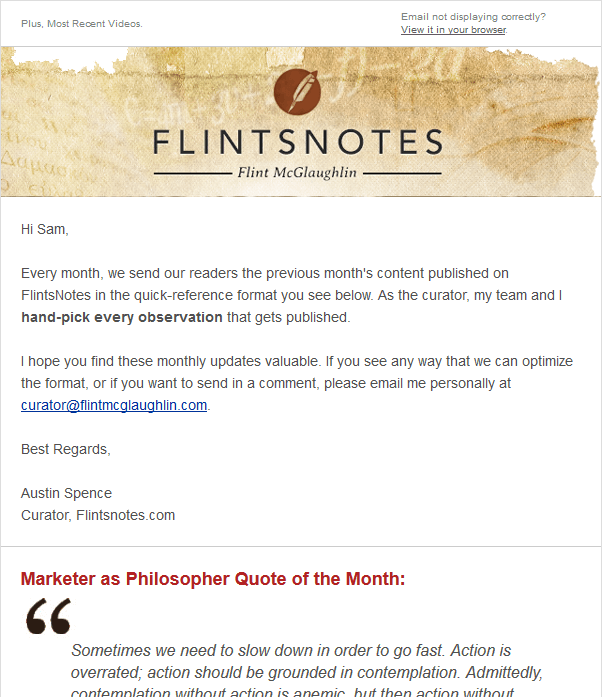One of the fastest ways to increase your performance is to improve your call-to-action. We did a meta-analysis of 150 of our experiments to determine 6 cognitive conditions that can hurt conversion.
In this session, Flint McGlaughlin, CEO and Managing Director, MECLABS Institute, shows you how to improve your call-to-action by lining it up more logically with your page visitors’ sequence of thought. This session is loaded with practical case studies and examples, both good and bad, to help you avoid common CTA errors and give you ideas for your own webpages.
If you would like your landing pages or other marketing to be considered for live optimization – on-the-spot analysis with Flint sharing how to improve conversion during upcoming sessions – send it to us at info@meclabs.
Key points in the video:
1:14 Which CTA won?
6:54 Key principle #1 – CTA is more than a button, it is …
9:23 Key principle #2 – CTA depends upon the context of …
10:27 6 negative conditions the customer experiences when they see a call-to-action
11:21 Cognitive condition #1: apathy, and the root cause
13:12 Condition #1’s solution can be found in this case study: Defence contractor
18:00 Condition #2: negative surprise and its root causes
19:42 Condition #2’s solution can be found in these case studies …
26:32 Two flawed “asks”
27:20 Here’s a checklist you can use on your webpages with criteria for a good CTA, and Condition 3: Too many choices.
29:38 The solution can be found in these case studies … This is part one of a two-part series on the call-to-action.
You can view part two here: https://youtu.be/dn868FkDqD8
“Asking ‘how’ leads to information; asking ‘why’ leads to wisdom.” This is the essence of Dr. Flint McGlaughlin’s book, The Marketer as Philosopher
For more information, you can visit https://map.flintmcglaughlin.com

